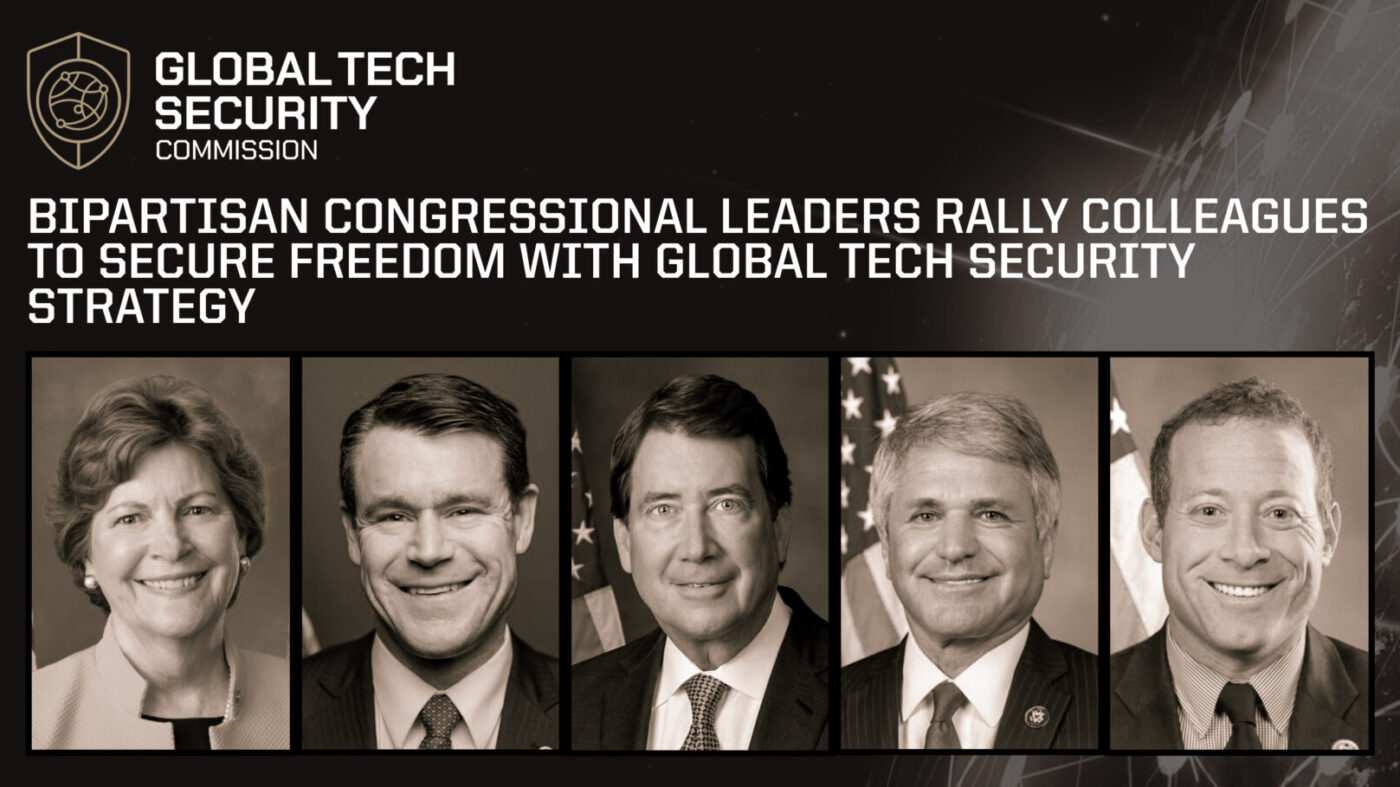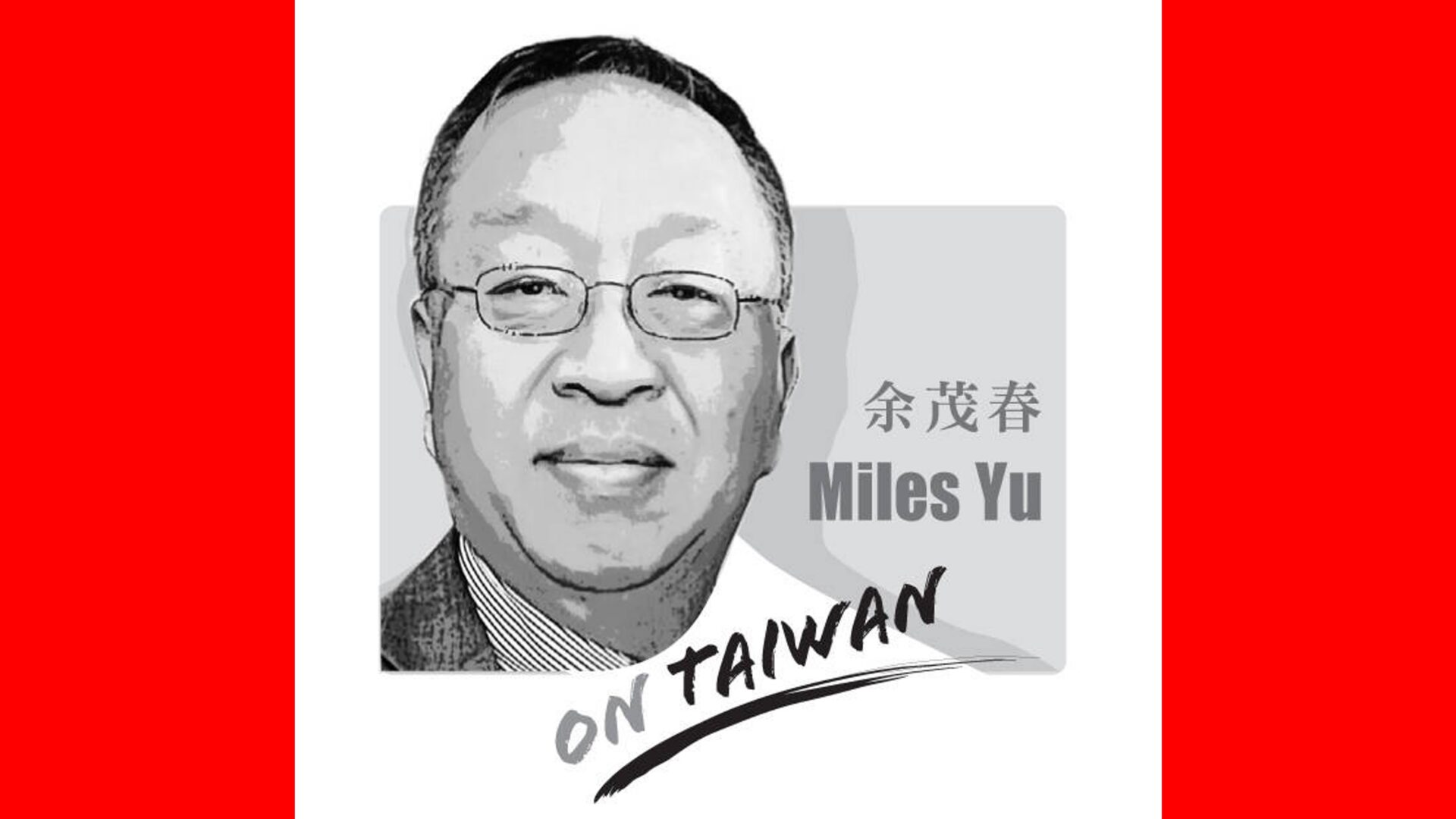
Bipartisan Congressional Leaders Rally Colleagues to Secure Freedom with Global Tech Security Strategy
Krach Institute for Tech Diplomacy at Purdue
04.10.23Top Foreign Policy Lawmakers Unite Around Global Tech Security Commission
Washington D.C. – A group of distinguished bipartisan leaders in foreign policy and national security, including Senators Jeanne Shaheen (D-NH), Todd Young (R-IN), and Bill Hagerty (R-TN), as well as Representatives Michael McCaul (R-TX) and Josh Gottheimer (D-NJ), serving as Honorary Co-Chairs of the Global Tech Security Commission, have issued a call to their fellow Members of Congress to join the effort to develop a Global Tech Security Strategy to defend freedom against technological authoritarianism.
In a “Dear Colleague” letter, the Honorary Co-Chairs of the Commission emphasized the critical importance of advancing a global tech security strategy in the face of mounting challenges from China to U.S. global leadership, security, and values. The Commission seeks to counter the rise of techno-authoritarianism by protecting shared democratic principles and liberties on which our nation and the free world are built. The Global Tech Security Commission was launched in response to the Congressional call for a thorough, bipartisan tech security playbook that would rally and unify like-minded countries, leverage the innovation and resources of the private sector, and build a global network to develop, protect and adopt trusted technologies.
Led by Co-Chairs Keith Krach, former U.S. Under Secretary of State and former CEO of DocuSign, and Kersti Kaljulaid, former President of Estonia and former Chair of the Three Seas Initiative, the International Commission is uniquely positioned to counter techno-authoritarian threats in three key ways.
First, its focus is on developing in-depth strategies for each White House-designated national security tech sector and integrating them into an overarching global tech security strategy. Second, global in scale and led by the private sector, the Commission is composed of 15 country commissioners, 12 tech sector commissioners and more than 20 strategy commissioners, who each lead expert advisory councils. Third, while previous commissions primarily focused on problem analysis and defensive policies, the Global Tech Security Commission will integrate offensive and defensive strategies and begin building the Global Tech Trust Network aimed at establishing standards to accelerate the adoption of trusted technologies.
“Both sides of the aisle recognize that the United States and the free world face ever-increasing technological threats from authoritarian regimes, such as Russia, China, Iran, and others,” said Co-Chair Krach. “The bipartisan support for the Global Tech Security Commission conveys the urgency of its mission. The key to securing freedom is securing high tech with trusted technology. Failure is not an option.”
As the Commission continues to draft the Global Tech Security Strategy, the Honorary Co-Chairs urge their fellow Members of Congress to engage with the Commission and support its efforts to defend freedom from technological authoritarianism. Its operations are supported by the Krach Institute for Tech Diplomacy at Purdue and the Atlantic Council.


###
About the Global Tech Security Commission
The Global Tech Security Commission, consisting of international commissioners and multi-sector leaders, is committed to safeguarding freedom through the adoption of trusted technology. Its charter is to integrate comprehensive offensive and defensive strategies for the national security tech sectors into an overarching global tech security strategy. This mission aims to rally and unify like-minded countries, leverage private sector innovation by building a global tech trust network, and establish standards based on shared democratic principles.
For the Commission’s latest developments, visit globaltechsecurity.com. Please contact press@atlanticcouncil.org or techdiplomacy@prf.org for media inquiries about the Global Tech Security Commission.
About the Krach Institute for Tech Diplomacy at Purdue
Built on the nonpartisan principle that technology must advance freedom, the Krach Institute has rapidly become the world’s leading authority on Tech Diplomacy – the practice of integrating high-tech expertise, Silicon Valley strategies with foreign policy tools to accelerate the adoption of trusted technology. With Purdue’s distinguished reputation as America’s foremost national security university, the Institute leverages the university’s cutting-edge innovation and global prominence in STEM education to execute result-oriented strategies.
For more information, visit www.techdiplomacy.org and follow on Twitter, LinkedIn, and YouTube.
About the Atlantic Council
Driven by our mission of “shaping the global future together,” the Atlantic Council is a nonpartisan organization that galvanizes U.S. leadership and engagement in the world, in partnership with allies and partners, to shape solutions to global challenges. The Atlantic Council’s Global China Hub researches and devises allied solutions to challenges posed by China.
Text of the letter follows:
April 11, 2023
Dear Colleagues:
We write to encourage you to engage with the Global Tech Security Commission (the Commission), a network of global multi-sector leaders dedicated to creating a global tech security strategy that safeguards freedom through the adoption of trusted technology. As we all witnessed, and members of Congress have universally condemned, the Chinese Communist Party (CCP) blatantly disregarded the sovereignty of U.S. airspace by flying a spy balloon over multiple states, including areas with sensitive U.S. military assets. The CCP demonstrated its determination to use whatever technological means available to probe U.S. defense vulnerabilities. We are proud to serve as bipartisan Honorary Co-Chairs of the Commission at a time when the United States is working to unite its transatlantic and Indo-Pacific allies and partners across a range of critical technology issues in the face of rising authoritarianism around the world.
Three factors make the Commission’s scope uniquely strategic for countering techno-authoritarian threats. First, the Commission’s focus is on developing in-depth strategies for each White House-designated national security tech sector and then integrating them into an overarching global tech security strategy. Second, the Commission is global and private sector-led, comprised of more than two dozen commissioners, each a designated representative from a key tech sector, country, or strategy, and each commissioner will lead an advisory council of experts. Third, while previous commissions primarily focused on problem analysis and defensive policies, the Commission will integrate offensive and defensive strategies and begin building the Global Tech Trust Network aimed at establishing standards to accelerate the adoption of trusted technologies.
This Global Tech Security Commission is led by Co-Chairs—the Honorable Keith Krach, former U.S. Under Secretary of State for Economic Growth, Energy, and the Environment and former CEO of DocuSign, and the Honorable Kersti Kaljulaid, former President of Estonia and former Chair of the Three Seas Initiative. Its mission is to develop a global tech security strategy designed to rally and unify like-minded countries, leverage the innovation and resources of the private sector, and build a global network to develop, protect and adopt trusted technologies. Its operations are supported by the Krach Institute for Tech Diplomacy at Purdue and the Atlantic Council.
At a time of increasing economic uncertainty, profound technological change, and mounting challenges from China to U.S. global leadership, security and values, the Global Tech Security Commission seeks to advance a global tech security strategy that counters the rise of techno-authoritarianism by protecting the shared democratic principles and liberties on which our nation and the free world is built. The strategy also seeks to foster sustainable, high-tech jobs for the American middle class.
Leaders from multiple presidential Administrations have underscored the critical importance of advancing a global tech security strategy. The Global Tech Security Commission shares this bipartisan vision of a future America that has cultivated orders of magnitude more engineers, technicians, and computer scientists, as well as chip-related startup companies and manufacturing jobs. Moreover, the Commission recognizes that it is critical to advance a global and comprehensive approach that brings together private and public sector leaders from the United States and other tech democracies around the world. Building on foundational bipartisan laws, such as the CHIPS and Science Act, U.S. actions at home must be complemented by allied and partner action and harness the innovation of the private sector if we are to effectively compete with China across emerging technology industries.
We therefore invite you, as Members of the United States Congress, to engage with the Global Tech Security Commission as it carries out its timely and important mission to advance liberty and prosperity across allied democracies and promote a high-tech, innovation-driven job market in America. The Commission seeks to educate and engage with Congress to help influence the course of U.S.-China strategic competition and determine whether technological advances will be used to uphold liberal democratic values or techno-authoritarianism.
The Commission welcomes the input of Members of Congress and their staff as it develops the Global Tech Security Strategy. Members of the Commission are available to discuss or testify on their unique insights, as well as the findings and recommendations of the Commission, once its report is published. For more information, please contact Brad McKinney, Vice President of Strategic Initiatives at the Krach Institute for Tech Diplomacy at Purdue, at bamckinney@prf.org.
Sincerely,
Jeanne Shaheen
United States Senator
Todd Young
United States Senator
William F. Hagerty
United States Senator
Michael McCaul
Member of Congress
Josh Gottheimer
Member of Congress
Related Posts

article
The Era Of ‘Tech Diplomacy’ Is Here
Technology is the new frontier of international relations. The interaction is bi-directional: technology is defining diplomatic matters while diplomacy is also influencing the development and deployment of technology. Take semiconductors as an example. This is a technology that forms the foundation of digital economy, national security, and productivity in almost all industries. Global supply chain in the semiconductor industry is shaping U.S. foreign policy. Conversely, America’s diplomatic effort has been redefining the supply chain. Tech diplomacy is different from science diplomacy, which became a key pillar for the U.S. and other countries since World War II. Scientists participated in treaty negotiations, engaged in bilateral summits and served as attachés at embassies. Primary topics included nuclear proliferation, super-collider construction, human space exploration and environmental science.

By: Miles Yu
article
Miles Yu On Taiwan: China’s lessons—and fears—from the Wagner revolt in Russia
For over a century, tumultuous events thousands of miles away in Russia have impacted China profoundly. Mao Zedong (毛澤東) famously said that the cannon sound of the October Revolution brought Marxism-Leninism to China. Now Xi Jinping (習近平) fears that last month’s Wagner revolt may provide a model for the Chinese Communist Party’s undoing.